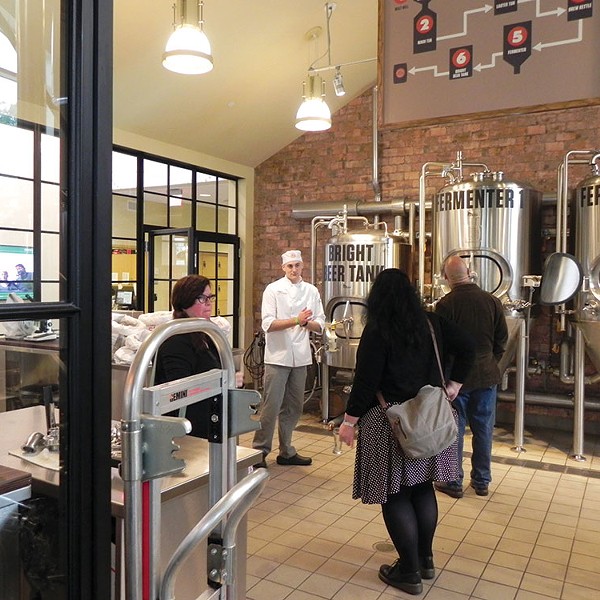damage is dead babies, crippled children, burnt mothers, and crushed fathers.) All of this requires intelligence—information, not smarts. Do they actually have a weapons program? How close are they? Would they really use them? Where are the targets? How are they protected?
So the President picks up the phone and calls the CIA and says, “What do our spies tell us?” The answer is, “Nothing.”
In 2004, someone made a clerical error and sent a batch e-mail to the CIA’s network in Iran such that any recipient could identify all the others. One was a double agent. So much for that.
No matter. We have our multibillion-dollar NSA supersecret, spy on anyone, don’t need no courts or warrants, listening program!
Remember Ahmed Chalabi, the Iraqi émigré, convicted of bank fraud, who orchestrated the “information” that Iraq had WMDs, and who was picked to be the Charles DeGaulle of liberated Iraq? He told the Iranians that we had broken the code of their intelligence service. That shut that down.
This is not a unique situation. It is the standard. The archetype. The prototype.
The CIA has never been able to penetrate hard targets. Either to get information,
to foment unrest, revolutions, and coups, or to carry out assassinations.
Hard targets refer to stable, authoritarian regimes, usually with an ideological
base.
During the Cold War, that meant the Soviet Union, the Eastern Bloc coun-
tries (Albania, Bulgaria, Hungary, Czechoslovakia, East Germany, Romania, and
Poland), Red China, North Korea, North Vietnam, and Cuba.
Since the Cold War such targets include Iraq under Saddam Hussein, Syria,
Iran, North Korea, Cuba and the nonstate enemy, al-Qaeda.
They certainly tried. There was not just one Bay of Pigs. There were many. At-
tempts were made in all the countries listed above. All of them failed. Thousands
died.
Still, the CIA has a fearsome reputation, acquired in 1953 with the famous coup
that overthrew the elected government of Iran and put the Shah in power.
This introduces us to the concept of blowback: unanticipated consequences
that explode in our face.
It can be immediate. The operation fails, we’re caught with our hands in the
cookie jar and no “plausible deniability.”
Examples include failed coup attempts in Syria and Indonesia in 1957, trading
arms for hostages in Iran under Reagan (against US law and it only returned three
of thirty hostages), and supporting armed insurrection in Nicaragua (against US
law, it failed, and the Contras were dealing cocaine).
Or it can succeed, and its very success creates failure.
The Iranian coup did attain its goals—to save British oil interests and put an anti-
Communist ally in power. Plus the Shah lasted 22 years. A hell of a run for anyone.
However, it brought democracy in Iran to a dead stop. When the revolution
finally came it created an Islamic theocracy that sponsors terrorists and Islamic
revolutionaries.
Other examples of blowback include:
Iraq, 1958-68: Supported coup attempts that finally brought the Ba’ath Party
to power, bringing the world Saddam Hussein.
Congo, 1961: Coup against Patrice Lumumba (subsequently murdered).
Mobutu Sese Seko took power, a corrupt, murderous dictator who looted the
country for 32 years. Afterward, the country collapsed into civil war.
South Vietnam, 1963: Coup against President Diem (assassinated). His succes-
sors were worse and even less able to pull South Vietnam together.
Cambodia, 1970: Supported Lon Nol after his coup. The CIA became his
partners in running the country. A reasonably stable, neutral country devolved
into a civil war which the Khmer Rouge won, and then launched one of the more
horrific killing campaigns of modern times.
Afghanistan, 1979-89: Th e CIA’s greatest success. Support of the Afghan
rebels against the Soviet occupation. Th at war was Russia’s Vietnam, but worse,
a signifi cant cause of the collapse of the Soviet system. However, no one gave any
thought or attention to what would happen afterward. Th e rise of the Taliban
and al-Qaeda.
There were coups that succeeded in keeping Communists—or just leftists—
out of power that didn’t have particularly bad consequences for the US, but were
terrible for those countries. Most prominent are:
Guatemala, 1954: A coup against a left leaning government. Led to “forty years
of military rulers, death squads, and armed repression.” (Tim Weiner, author of
Legacy of Ashes: A History of the CIA)
Chile, 1973: Coup against Salvador Allende. Transformed a stable democracy
into sixteen years of dictatorship under August Pinochet. About 3,000 killed and
another 25,000 put in prison for political off enses. His security forces even carried
out an assassination in Washington, D.C.
Indonesia, 1965: Sukarno replaced by Suharto, who ran an anti-Communist
purge, that killed 500,000 to 1,000,000 civilians.
From the ‘60s to the ‘80s there were right wing coups all over South America.
Beginning in 1975 the military governments and dictators of Argentina, Chile,
Uruguay, Paraguay, Bolivia, Brazil, Ecuador, and Peru cooperated in Operation
Condor, a program of assassinations, death squads, torture, disappearances, and
imprisonment of leftists. It’s hard to pinpoint the degree of American involve-
ment, but both the coups and the state-sponsored terror certainly received US
support and cooperation.
The Cold War was a real war with many dead bodies and ruined lives. Accepting
the premise that it had to be fought around the world, was it won this way?
Or could it have been won by supporting democracy and elected governments
whichever way they wandered?
That’s the real question about the past.
It was never seriously debated. Because, after all, it was all secrets.
Which brings us to the question for the present and for the future: Can secrecy—
of this sort—work at all?
Next month: the answer to that question and the role of covert operations in a
democratic society.

















